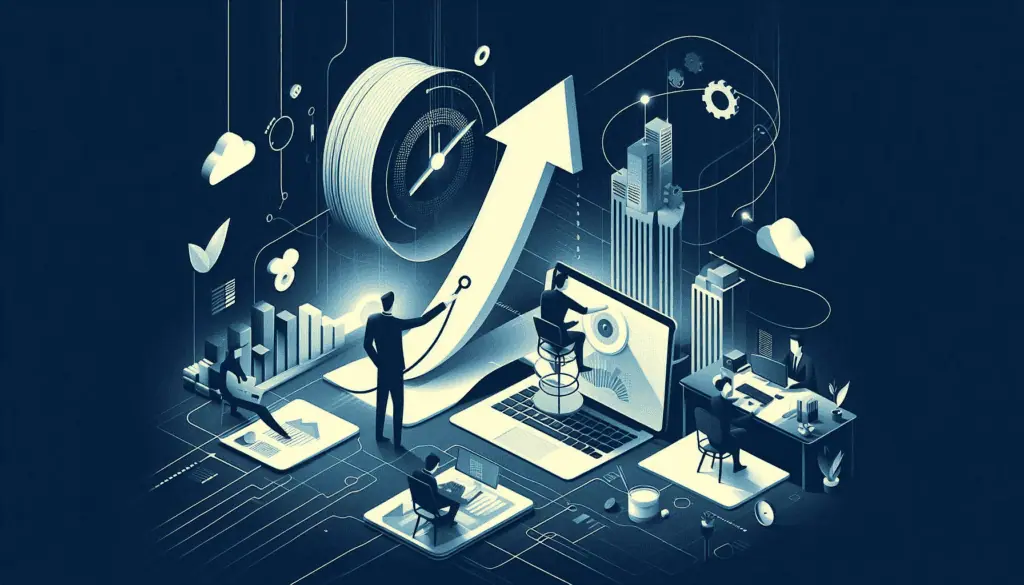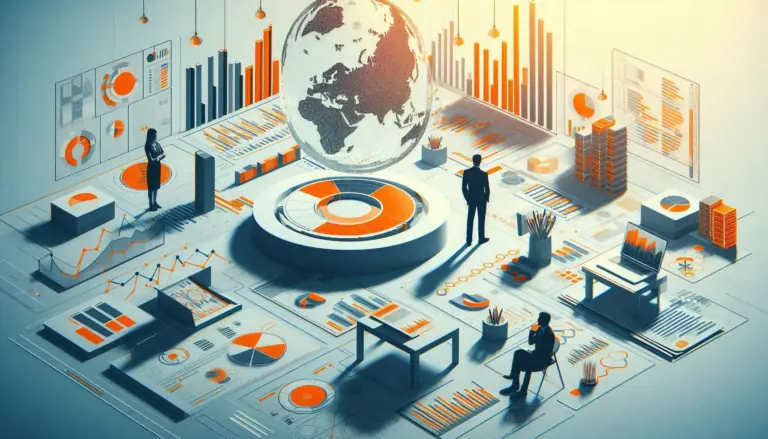Data Monetization: Unlocking Hidden Value for Small Businesses

Written By:
Last Updated Date:
TL;DR
Data monetization isn’t just for the big guys. Your business can turn data into an asset. By using it to improve customer experiences and make better decisions you create new revenue streams and trust. It’s not about selling data; it’s about using it responsibly with privacy and security in mind. With the right plan and tools even small businesses can unlock this hidden value and grow.
Key Takeaways
- Your data is an asset: Use the data you already collect to create new revenue streams and make better decisions that drive growth.
- It’s not about selling data: Data monetization means using insights to improve customer experiences, increase loyalty and enhance operations. All while keeping customer trust top of mind.
- Start small and be ethical: You don’t need to be a data expert to get started. Any business can turn data into a competitive advantage with the right tools and a focus on privacy and security.
Foursquare’s Data Monetization Story

Foursquare’s data monetization journey is fascinating. First, it was a social app that allowed users to “check in” at different venues, like restaurants or bars, and share their location with friends. As the gamified experience took off, Foursquare soon realized its real gold was the location data it collected from millions of users. With billions of check-ins recorded, Foursquare had a treasure trove of foot traffic, consumer behavior, and famous locations.
The company saw an opportunity to monetize this data and help businesses make better decisions. By offering anonymized insights on where people were going, how often, and when Foursquare created a new revenue stream, companies, especially retailers, advertisers, and even urban planners, wanted access to this data to better target their customers and optimize store locations.
In 2014, Foursquare officially switched to charging businesses for access to its geolocation data, which helps companies improve their marketing, choose the best locations for their stores, and understand consumer movement patterns.
This change helped Foursquare survive in a crowded app market and turned it into a data company. By selling anonymized data to big companies like Microsoft and using its insights to offer location-based advertising, Foursquare became a profitable business. It is an excellent example of how a small app can turn its unique data into something much bigger and create value for companies and consumers.
Monetize and Trust

Data monetization has become a powerful tool for all businesses to unlock new revenue streams and create value from the data they collect. As more organizations realize data is not just a byproduct but an asset, they are developing strategies to turn it into actionable insights that align with their overall business strategy.
One key approach is to make data work for the business and its customers. By using data to improve customer experiences, you can drive loyalty and retention and create a cycle of value that benefits both parties.
But data monetization is not just about selling data; it’s also about ensuring that data is ethically sourced, well-governed, and secure so customers can trust it. These examples show that regardless of industry, every business can turn data into a revenue-generating asset when approached with the right tools, partnerships, and mindset.
What is the Data Monetization of Data Assets?

Data monetization is not just about selling data. It’s about using that data to improve business performance and create new value. Developing a data monetization strategy means aligning data efforts to overall business objectives, considering customer needs and ethical implications, and strategically using data insights to generate revenue.
The magic happens when companies move from collecting data to using it for better decision-making and innovation. Combining data with advanced analytics allows you to create solutions that drive internal growth and offer value to other organizations, such as selling market trends or operational insights. Successful data monetization turns information into actions that benefit the business and its customers, turning data into a tool for long-term business success.
Why Should You Care?

Your data is more valuable than you think. It’s a hidden treasure that, when tapped, can transform your business. Using data effectively gives you a competitive edge that will drive better decision-making, improve operational efficiency, and deliver highly personalized customer experiences.
In today’s digital world, auditing your existing data is the key to staying ahead. Imagine using data to streamline processes, anticipate customer needs, or develop new products and services. This will open up new revenue streams and future-proof your business so you’re ready for whatever comes next.
Businesses that see the strategic value of data will succeed. They will use their insights to make better decisions and offer more personalized experiences that keep customers returning.
Data Monetization Benefits

Net-New Revenue from Data Assets
Monetizing data assets can be a big win for organizations looking to create new revenue streams. Businesses can tap into additional income streams by selling or licensing their data and increase their profitability by a multiple.
This is especially useful for businesses with large volumes of valuable data, such as customer, transaction, or sensor data. By monetizing these data assets, businesses can unlock new revenue opportunities and gain a competitive advantage in the market.
Customer Experience with Customer Data
Data monetization isn’t just about revenue; it’s also a tool to improve customer experience. Digging into customer data can reveal valuable insights into customer behavior and preferences. These insights can inform various parts of the business, from product development to marketing strategies and customer service initiatives.
For example, by analyzing purchase patterns, a business can tailor its marketing campaigns to meet customer needs and achieve higher satisfaction and loyalty. Using customer data will drive business growth and revenue, which is a win-win for the business and its customers.
Data Monetization Challenges

While the benefits of data monetization are clear, the journey also has challenges. One of the biggest is navigating new opportunities in new markets. Organizations looking to monetize their data may enter industries or markets outside their core business.
This can be daunting, requiring a deep understanding of the new market’s dynamics, trends, and key players. You also need to be agile and adapt quickly to changing circumstances. Success in these new markets often requires investment in new technology, skills, and expertise. Overcoming these strategic challenges is key to unlocking the full potential of your data monetization efforts.
How do you Get Started with Data Monetization?

Getting started with data monetization doesn’t have to be scary. It just needs a plan. The first step is to get your data in order. After all, if the data you’re working with is messy or inaccurate, the insights you get won’t be valuable. Next, align your data strategy with your business goals.
Ask yourself what you want to achieve, improve operational efficiency, or develop new products. These objectives will dictate how you use your data. Investing in technology doesn’t mean a massive IT overhaul is required. Instead, focus on choosing the right tools, like analytics platforms, AI systems, or a data monetization platform, to help you get insights from your data.
And don’t forget to explore new markets. Your data is a goldmine for other businesses. Many businesses successfully sell anonymized data to help others make better decisions or expand their customer base. Start small, with clear objectives and the right technology, and then grow your data monetization as you go.
Privacy and Security is Non-Negotiable

While data monetization has enormous potential, it comes with significant responsibilities, especially privacy and security. Today’s consumers are more aware than ever of how their data is collected and used, and if they feel their privacy is at risk, they won’t hesitate to go elsewhere. Integrating internal data into your broader data strategy can also improve business processes and decision-making, making secure handling even more critical.
You must build trust by ensuring your data strategies comply with regulations like GDPR or CCPA. These are not obstacles but necessary safeguards for consumers’ rights. When you treat customer data with respect and use it responsibly and transparently, customers will trust you more, and loyalty and long-term relationships will follow.
Prioritizing privacy and security in your data monetization efforts will protect you from legal risks and enhance your brand reputation and customer confidence, which are valuable assets.
Get Started

You don’t have to be a tech giant to monetize your data. The key is to recognize the value of the data your business already generates. By taking that first step and understanding what insights your data can give, you’ll open up new opportunities.
Whether it’s improving internal processes, enhancing customer experiences, or even finding new revenue streams by selling anonymized insights, your data has untapped potential. The hard part is making that leap from seeing data as information to treating it as an asset. Once you start using it, who knows? That unused data might be the next big thing for your business.
Conclusion
Your data has more value than you think. If used correctly, it can be a business changer. By approaching data monetization with ethics, you can create new revenue streams, improve customer experiences, and build lasting trust. It’s not just about making a quick buck; it’s about turning your data into something valuable for you and your customers.
Now’s your chance to get started. Take the first step to using your data, but do it responsibly. You’ll get customer loyalty and a more significant bottom line when you prioritize privacy and transparency. Ready to see how data can drive your growth? Get started with data monetization today and watch your business grow.
Frequently Asked Questions (FAQ)
I’m a Data Enthusiast and Content Writer with a passion for helping people improve their lives through data analysis. I’m a self taught programmer and has a strong interest in artificial intelligence and natural language processing. I’m always learning and looking for new ways to use data to solve problems and improve businesses.






